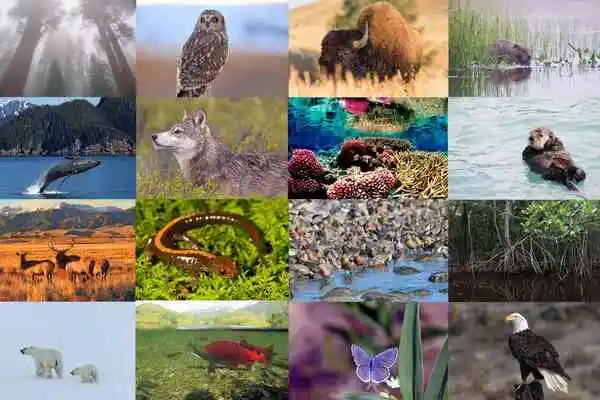For millions of years, Earth’s ecosystems have evolved, resulting in diverse and complex biological communities that coexist with their surroundings. Human activity has had an impact on nature in almost every part of the world since the 16th century; wild plants and animals are on the verge of extinction, deforestation and land degradation are causing water scarcity and erosion, and climate change is causing ocean acidification.
Biodiversity loss refers to the worldwide extinction of species (plants and animals), as well as the local reduction or loss of species in a specific habitat. Humans have changed ecosystems faster than ever before in the last 50 years; 60% of ecosystems are degraded and often over-exploited, and pressures on nature are increasing despite a growing number of responses to biodiversity loss.
A new survey attempts to fill some of the knowledge gaps by synthesizing the perspectives of thousands of biodiversity experts from around the world. The survey received 3,331 responses from scientists researching biodiversity in 187 countries, representing all major groups of species, habitats, and ecosystems.
Biodiversity is a complex topic, with millions of plant and animal species spread across every biome on the planet. To bring the global challenges to biodiversity into focus, experts from all over the world must communicate across borders. How can researchers share their findings in order to develop a shared understanding of the risks and opportunities for action?
This paper includes the perspectives of a diverse group of experts, allowing us to assess lesser-known taxa while also giving underrepresented experts a voice in the global literature. Experts who identify as women and come from the Global South have provided significantly higher estimates of past biodiversity loss and its consequences.
Patricia Balvanera
A new survey published in the Journal Frontiers in Ecology and the Environment and led by Forest Isbell, an associate professor at the University of Minnesota, attempts to fill some of the gaps in understanding by synthesizing the perspectives of thousands of biodiversity experts worldwide. The survey received 3,331 responses from scientists studying biodiversity in 187 countries, covering all major groups of species, habitats and ecosystems.
“While considering the types of species and ecosystems they know best, experts estimated that about 30% of species have been globally threatened or driven extinct since the year 1500. Experts also acknowledged substantial uncertainty around their estimates, with perhaps as few as 16% or as many as 50% of species threatened or driven extinct over this time.” said Isbell.
The study also identified important demographic and geographic differences in experts’ perspectives and estimates.

“This paper includes the perspectives of a diverse group of experts, allowing us to assess lesser-known taxa while also giving underrepresented experts a voice in the global literature. Experts who identify as women and come from the Global South have provided significantly higher estimates of past biodiversity loss and its consequences” said co-author Patricia Balvanera of the University of Mexico. “In addition, experts who identify as female study the taxa that experts believe are most threatened.”
The researchers encourage biodiversity experts to use these findings to learn how their own perspectives differ from those of other experts, and to ensure that a variety of perspectives are considered when conducting global biodiversity assessments, setting global biodiversity goals and targets, and implementing new policies and other transformative changes to conserve biodiversity.
“Because biodiversity is highly regional in nature, our study’s attempt to bring together the opinions of regional experts from around the world is unprecedented,” said co-author Akira Mori of Japan’s University of Tokyo. “From the standpoint of social and cultural diversity and inclusiveness, I believe we have presented certain suggestions for future international policy discussions, even if they are not necessarily complete.”
Species diversity promotes ecosystem resilience by providing ecological communities with the range they require to withstand stress. While conservationists often rightfully focus their efforts on species-rich ecosystems like rainforests and coral reefs, which have a lot to lose, a comprehensive biodiversity strategy must also include habitat types with fewer species, such as grasslands, tundra, and polar seas, where any loss could be irreversibly devastating. While much of the focus on extinction is on globally lost species, the majority of biodiversity’s benefits occur at the local level, and conserving local populations is the only way to ensure genetic diversity, which is critical for a species’ long-term survival.
The experts believe that greatly increasing conservation investments and efforts now could remove the threat of extinction for one in three species that may otherwise be threatened or extinct by 2100.





